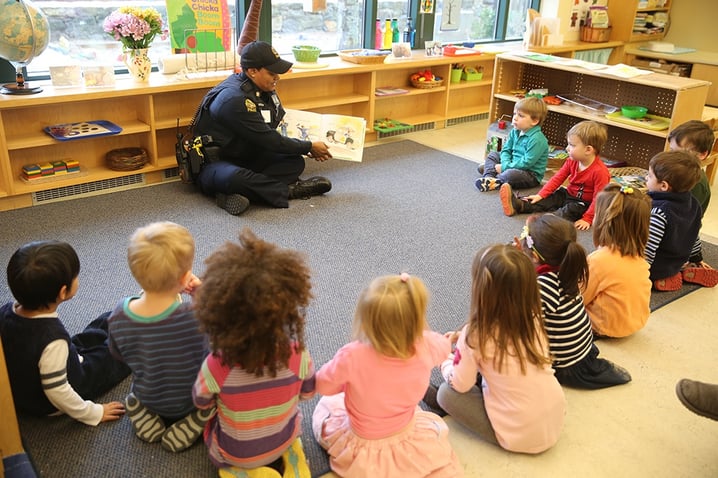Last summer, I shared my children's summer reading philosophy with you. In short my belief was: encourage young people to read whatever they want in whatever format they prefer.
Books have the power to change our life’s course — our beliefs, our attitudes, and our behaviors.
My philosophy hasn't changed, per se, but I see folks from Washington to the London Bridge who fail to recognize our common humanity. Their myopic thinking and actions serve as a distinct counter to the International Baccalaureate’s aim to help young folks recognize that people with their differences can still be right. This last year I’ve looked at the headlines and wondered, where is the recognition of our common humanity? And as an educator and a parent (my daughter Ida arrived March 1st), what can I do about it?
I was once told that we are fully formed human beings in Grade 5. The only things that can change the human heart are (1) the people we meet and (2) the books that we read. Books have the power to change our life’s course — our beliefs, our attitudes, and our behaviors. So, if you’ve joined me in my questioning about what we can do, consider using books to foster open-mindedness in your family and community. Let’s start in our homes and neighborhoods to bring about change in our world.
In response to people all over the world, not just Washington or London, who neglect to see our common humanity, I encourage you to select at least one family summer read that addresses the "other" (consider "other" to include age, class, race, ethnicity, sexual orientation, gender identity, ability, religion, etc). Here are some ideas:
- Read one chapter at a time together… either the physical book or the audiobook.
- Spend time talking about the chapter content with your child(ren) over meals or during a commute to soccer practice.
- Make time for sharing questions and wonderings, both yours and your child(ren)’s.
- Try to imagine the “othered” characters’ feelings and actions (i.e. if I was character X, I would feel Y).
- Talk about what contributes to the successes and/or challenges of the character who is “othered.”
- Spend time together considering the issue(s) presented in the book and explore “What can we as a family do about this issue?”

If you accept this summer reading challenge, below are some trusted lists to help you select something your family could use to see the "other" more clearly.
The Pura Belpre Award List
This list features Latino/Latina writers and illustrators whose work best portrays, affirms, and celebrates Latino culture.
Coretta Scott King Award List
This list features African American writers and illustrators whose work best reflects the African American experience.
The Schneider Family Book Award List
This list of award winners honor the artistic expression of the disability experience for child and adolescent authors.
The Amelia Bloomer Book List
This annotated book list features significant feminist content intended for young readers.
The Rainbow Book List
This bibliography of books with significant gay, lesbian, bisexual, transgender, and/or queer/questioning content is aimed toward youth, birth through age 18.
Working Together for Justice Booklist
These titles from ALSC encourage discussions about social justice and equity.
Growing Up Around the World
Organized by continent, this list from ALSC depicts contemporary life accurately for children living in the United States.
These books can be sourced from your local public library or bookstore...and it’s possible folks there are hosting book clubs and public dialogues about diversity and understanding. Perhaps your family will want to join in on the community’s conversation.
If not now...then when?


